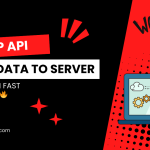The Best Fluffy Pancakes recipe you will fall in love with. Full of tips and tricks to help you make the best pancakes.
The Rise of Edge Computing in IoT
As the Internet of Things (IoT) continues to grow, the need for efficient data processing and analysis becomes paramount. Traditional cloud computing models face challenges when it comes to handling the massive amounts of data generated by IoT devices. This is where edge computing steps in to provide a solution.
What is Edge Computing?
Edge computing involves processing data closer to where it is generated, rather than relying on a centralized cloud server. By bringing computing power closer to IoT devices, edge computing reduces latency, enhances security, and enables real-time decision-making.
Real-time Data Processing with Edge Computing
One of the key advantages of edge computing in IoT systems is its ability to enable real-time data processing. With edge nodes located in close proximity to IoT devices, data can be processed instantly without the need to send it back to a central server for analysis. This results in faster response times and more efficient use of network bandwidth.
Benefits of Edge Computing for IoT
- Low Latency: Edge computing reduces latency by processing data closer to the source, enabling real-time responses.
- Improved Security: By processing data locally, edge computing helps to enhance security and protect sensitive information.
- Bandwidth Optimization: Edge computing minimizes the need to transmit large amounts of data to the cloud, optimizing network bandwidth.
- Scalability: Edge computing allows for distributed computing resources, making it easier to scale IoT systems as needed.
Use Cases of Edge Computing in IoT
Edge computing finds applications in various IoT scenarios, such as smart cities, industrial automation, healthcare monitoring, and autonomous vehicles. In these contexts, real-time data processing is crucial for ensuring efficient operations and timely decision-making.
Conclusion
Edge computing plays a vital role in enabling real-time data processing in IoT systems. By leveraging edge nodes for data processing and analysis, organizations can unlock the full potential of their IoT deployments and drive innovation across industries.




